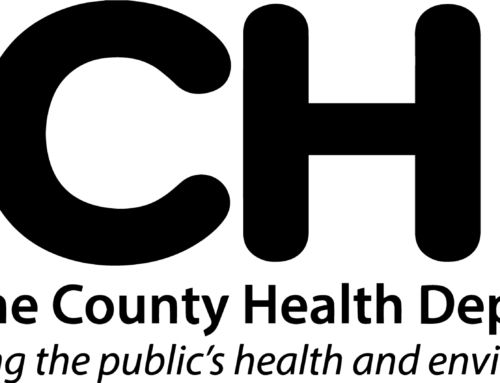Project Description

“With accreditation came continuous improvement on many fronts, including consistent use of data in decision-making.”
Data-Informed Decision Making is a Constantly Improving Standard at Deschutes County Health Services in Bend, Oregon
By Channa Lindsay, MPH
Deschutes County Health Services (DCHS) in Bend, Oregon, became a PHAB-accredited health department on June 18, 2014. With accreditation came continuous improvement on many fronts, including consistent use of data in decision-making. Use of data to inform health department work is part of the bedrock of the PHAB Standards and Measures, from the community health assessment to robust surveillance systems, data availability to programs, use of data in analysis and planning, and sharing of data to partners and the community.
DCHS focused on data-informed decision-making prior to, and after, receiving the accredited status. Even after accreditation, limitations existed in access to certain data. In addition, regular review of data as part of “day-to-day” work was not sufficiently integrated in the performance management system. DCHS realized programs, and public health as a whole, needed easy access to both internal and external data, and a mechanism to make review of data an inherent part of program planning and discussion.
One of the first steps in doing this was to modify the performance management system to create a robust and data-informed system that easily aligned plans and action both internally, among programs, divisions, and the agency, and externally to local, regional, state, and federal priorities. In 2014, DCHS embarked on a journey to implement the integrated management system (IMS), based on the Montana Department of Public Health and Human Services’ HealthStat model, PerformanceStat model, and Baldrige Performance Excellence Framework. The integrated management system links the Regional Health Assessment, to the Regional Health Improvement Plan, and agency strategic plan. Timelines for creation of these plans are aligned to one another, and must be completed in sequence. In addition, the IMS fosters a structure in which data and information from these long-term plans guide and inform annual program planning, the quality improvement and performance management plan, and the workforce development plan.
Metrics and tasks in annual program plans and strategic plan are updated at least quarterly by staff, and reviewed/ discussed as an agency on a regular basis. In addition, DCHS uses a cloud-based performance management system to help maintain these plans, and automatic reports on metrics and progress are send to programs and leadership for reflection.
To help manage external data, DCHS hired an epidemiologist in 2016. This position assists in managing the regional health assessment, makes access and analysis of community-level data easily accessible to all staff, and enables timely and accurate communication to the public on health data. Since the hire of this position, multiple improvements in external communication were feasible, including creation and maintenance of an external data website to inform the community on relevant and local public health data and information.
In 2017, DCHS explored the use of special software for data visualization through dashboards. Dashboards display data from electronic record systems and other sources at the department level and program level. This information is sent to leadership for review and reflection during planning.
Accreditation standards helped to highlight the need for better and more meaningful use of data to inform decision-making. The standards have:
Deschutes County Health Services in Bend, Oregon, was awarded national accreditation through the Public Health Accreditation Board on June 18, 2014.
About the author: Channa Lindsay, MPH, is Quality Improvement Analyst and Accreditation Coordinator at Deschutes County Health Services in Bend, Oregon. Contact her at [email protected].




